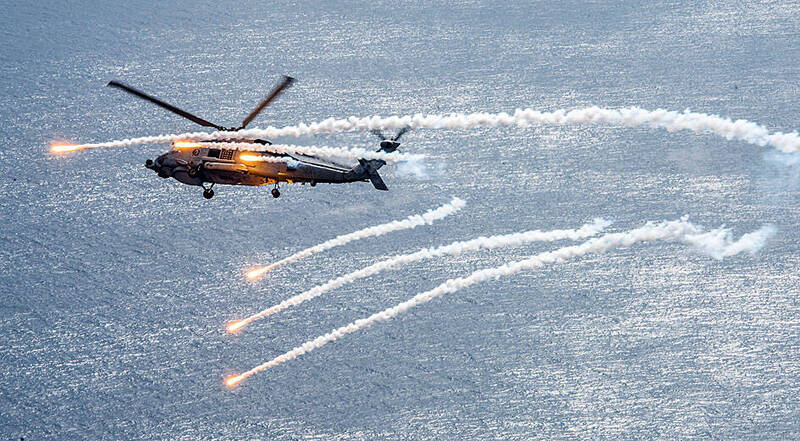Politics
US Signals Willingness to Restart Talks on Taiwan’s Helicopter Acquisition

The United States has indicated a readiness to resume discussions regarding Taiwan’s long-desired acquisition of MH-60R anti-submarine helicopters, according to a senior government official. This development marks a significant step in Taiwan’s ongoing efforts to enhance its military capabilities amid increasing regional tensions.
Currently, Taiwan operates 17 S-70C anti-submarine helicopters, a reduction from 21 due to four significant flight safety incidents. To bolster its anti-submarine capabilities, the military is looking to purchase between 10 to 12 MH-60R helicopters, with potential plans to acquire more based on negotiations with Washington. Some military sources suggest that the final number could exceed 13 helicopters.
In addition to the helicopters, Taiwan’s military aims to procure onboard anti-submarine sonar, advanced avionics, MK54 or MK50 torpedoes, anti-ship Hellfire missiles, laser-guided rockets, and machine guns. The navy has established a dedicated team to oversee the MH-60R acquisition, which will handle aspects such as determining the quantity, overall program costs, implementation schedules, and performance specifications.
Military officials express optimism that the deal will be included in Taiwan’s special defense procurement budget. The MH-60R is a key asset for the US Navy and has garnered interest from several nations in the Asia-Pacific region. For instance, South Korea received its first MH-60R last year, while New Zealand announced plans in August to acquire five helicopters.
This growing interest in the MH-60R underscores Taiwan’s need to modernize its fleet in response to increasing submarine threats posed by China. The US government has shown a willingness to provide the MH-60R to its allies to effectively counter China’s military expansion in the region.
Despite this progress, Taiwan’s request to procure the E-2D Advanced Hawkeye early warning aircraft has not advanced. The air force has sought the E-2D twice, but the requests have been declined due to concerns regarding redundancy with existing land-based radar systems. Military officials argue that the acquisition of the radar aircraft is based on a “clear operational need” and does not represent a waste of public funds.
As negotiations continue, the focus remains on enhancing Taiwan’s defense capabilities while addressing the complex dynamics of regional security.
-

 Business5 months ago
Business5 months agoKenvue Dismisses CEO Thibaut Mongon as Strategic Review Advances
-

 Lifestyle4 months ago
Lifestyle4 months agoHumanism Camp Engages 250 Youths in Summer Fest 2025
-

 Sports4 months ago
Sports4 months agoDe Minaur Triumphs at Washington Open After Thrilling Comeback
-

 Sports5 months ago
Sports5 months agoTupou and Daugunu Join First Nations Squad for Lions Clash
-

 Top Stories5 months ago
Top Stories5 months agoColombian Senator Miguel Uribe Shows Signs of Recovery After Attack
-

 World5 months ago
World5 months agoASEAN Gears Up for Historic Joint Meeting of Foreign and Economic Ministers
-

 Health4 months ago
Health4 months agoNew Study Challenges Assumptions About Aging and Inflammation
-

 Business5 months ago
Business5 months agoOil Prices Surge Following New EU Sanctions on Russia
-

 Entertainment4 months ago
Entertainment4 months agoDetaşe-Sabah Violin Ensemble Captivates at Gabala Music Festival
-

 Entertainment4 months ago
Entertainment4 months agoBaku Metro Extends Hours for Justin Timberlake Concert
-

 Top Stories5 months ago
Top Stories5 months agoRethinking Singapore’s F&B Regulations Amid Business Closures
-

 Business5 months ago
Business5 months agoU.S. House Approves Stablecoin Bill, Sends to Trump for Signature









